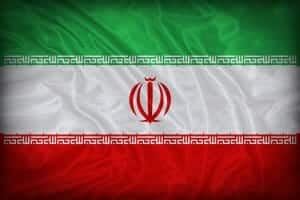Iran Now Open For Business?

The move will undoubtedly have a huge impact on the Middle East, and events are being watched with trepidation from Washington to Jerusalem, say analysts at financial advisory firm AES International.
The burning question for investors is whether the effect will be positive or a catalyst for more tension in an already highly combustible region?
$20 A Barrel?
The lifting of sanctions means, in theory at least, that Iran’s key sectors – oil and gas, banking, insurance and autos – will be back in business.
Some effects have been immediate – in particular the ability to sell its oil. But the news arguably couldn’t have come at a worse time for an industry already struggling with a glut of supply and historically low prices. Recently the price of Brent crude oil slumped to below $28 a barrel for the first time since 2003.
The rhetoric coming from Tehran promising it will up production swiftly to ‘500,000 barrels per day’ isn’t helping matters either. However, the long term oil story is not centred on Iran – there are many factors at play here. Absorbing this ‘bad news’ now, could be better in the long term as it avoids a potential future shock. For investors, this time at least, oil isn’t the main event.
Billions Free For Investment
The sanctions resulted in the freezing of a large chunk of Iranian oil revenues. With the sanctions lifted, Iran is now set for a cash windfall, estimated to be anywhere between $29bn and $100bn.
Regardless of the exact amount, the point is that substantial funds are now free to be invested in Iran’s ailing infrastructure – something it’s been unable to do for at least a decade.
Perhaps as a sign of things to come, transport minister Abbas Akhoondi announced the country had agreed to purchase 114 planes from European aircraft maker Airbus, a deal which is reportedly worth around $10bn.
The deal with Airbus highlights what this event actually means for investors. The re-emergence of a country the size and with the potential wealth of Iran, can only be a force for good, economically.
Large scale investment projects (like Airbus) may have been well-flagged (and may even have formed part of the discussions around lifting sanctions), but there will be many others which could positively impact the global economy.
Take the United Arab Emirates, for example. Relatively reliable estimates put Iranians as the sixth largest nationality group in the country – around 450,000 people. Many of these Iranians will be business owners. Even if they were not directly affected by the sanctions, the sanctions’ removal will only go to strengthen economic ties between the two countries.
$50bn Investment
Identifying what needs to be done to move on from its years of underinvestment, Iran’s moderate leader Hassan Rouhani, said he hoped the country would attract up to $50bn worth of international investmen tand finance in 2016.
Foreign businesses will now be clamouring to be a part of what is effectively one of the world’s biggest untapped markets.These businesses will be based in all corners of the globe and so the prospective pay-off has not only the potential to be big globally, but also diverse, supporting business from Hong Kong to Boston.
Iran, with a youthful population of more than 80 million, represents an exciting, potentially wealthy, new market for expats and their employers.